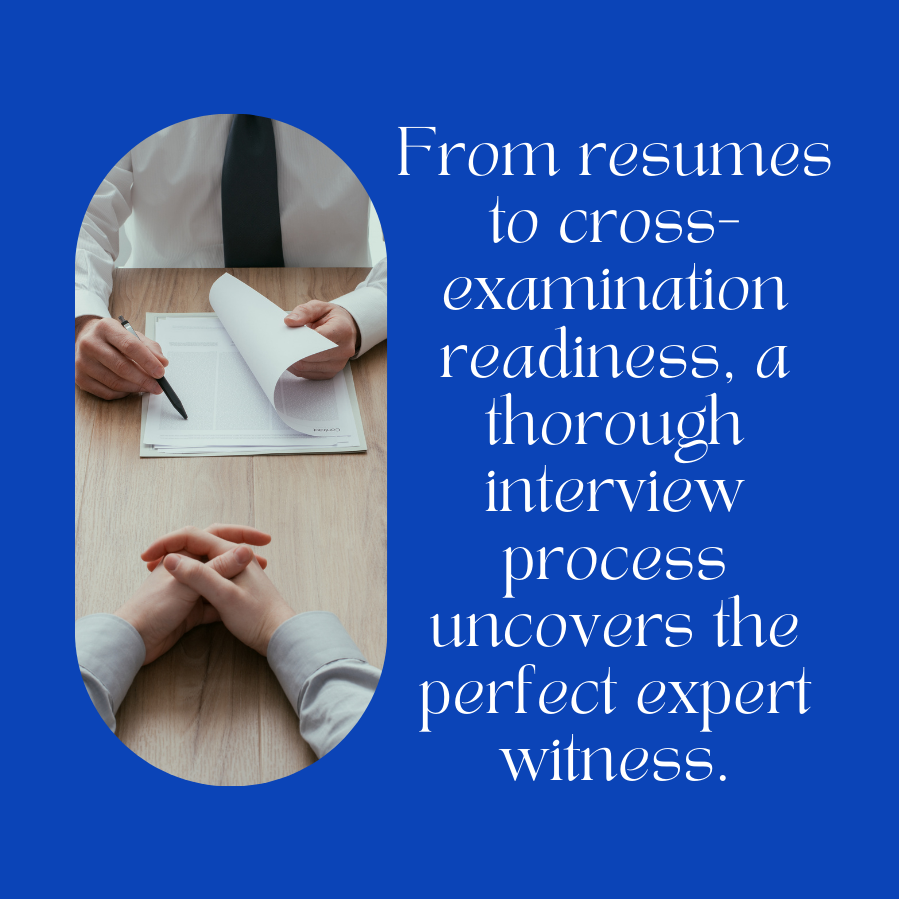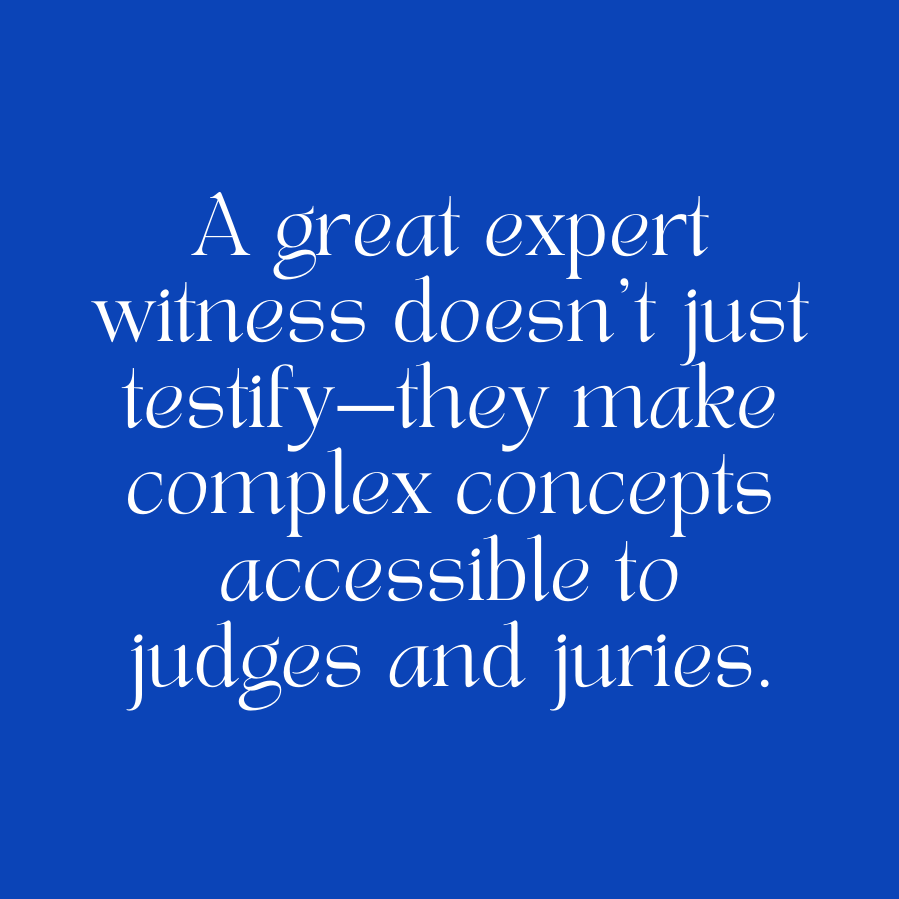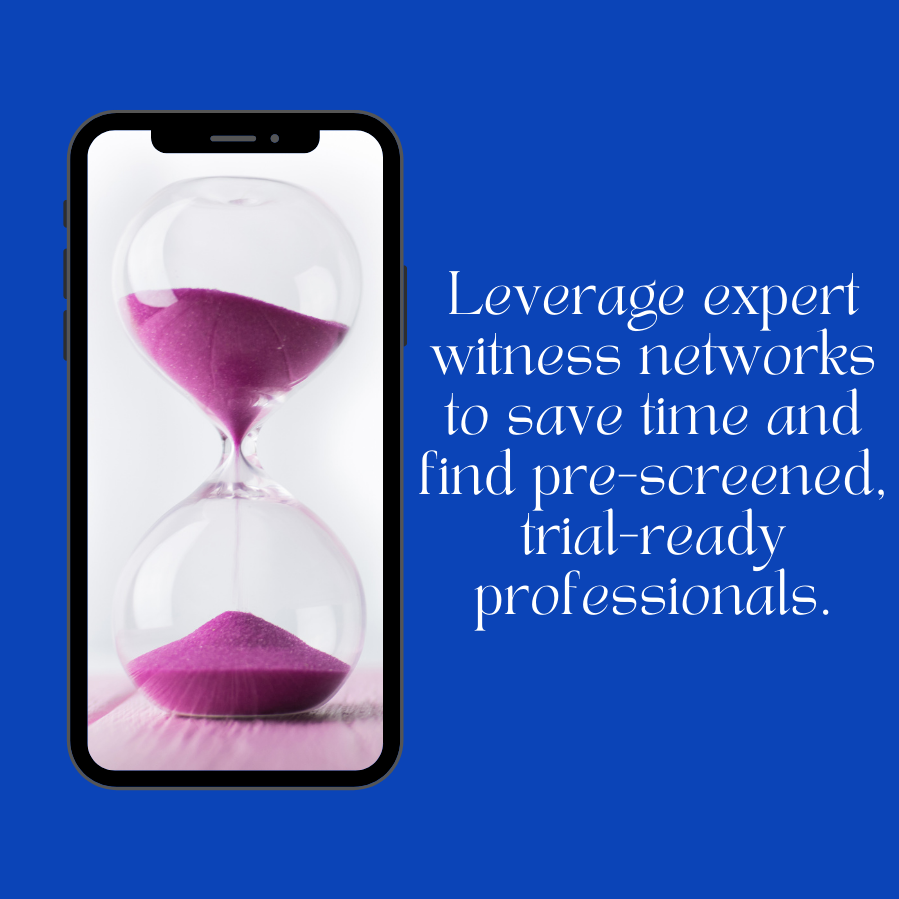Interviewing Expert Witnesses: A Step-by-Step Guide for Lawyers
The call came late in the afternoon. Your trial date has been moved up, leaving you with just weeks to finalize your expert witness strategy. As you sift through resumes and research potential candidates, the pressure mounts when interviewing expert witnesses. You know the stakes—choosing the wrong expert can cost your client the case. But what should you ask? How do you ensure your expert will hold up under cross-examination while also resonating with a jury? These are questions every litigator has faced, and the answers lie in a critical process: the interview.
Interviewing expert witness candidates isn’t just about checking credentials; it’s about identifying the perfect fit for your case. In this guide, we’ll walk through how to interview expert witness candidates, sharing practical tips and insights tailored for attorneys managing high-stakes litigation.
Why the Interview MattersThe Role of Expert Witness Interviews
An expert witness isn’t just an authority in their field; they’re a key part of your litigation team.

The interview is your opportunity to:
Assess their ability to explain complex concepts in simple terms.
Test their courtroom demeanor and communication skills.
Ensure their qualifications and methodologies align with the case’s needs.
By investing time in interviewing candidates, you can mitigate risks such as testimony exclusion, credibility challenges, or ineffective presentations.
Preparing for the Interview
1. Define the Case Requirements
Before you begin interviewing, clarify what your case demands from an expert witness. For example:
Technical Expertise: Does the case require specialized knowledge in areas like engineering, medical procedures, or data analysis?
Litigation Experience: Does the expert need prior courtroom exposure to navigate cross-examinations confidently?
Methodology Validation: Will the expert’s approach align with legal standards for admissibility?
Having a clear understanding of these factors ensures you ask targeted questions during the interview.
2. Review Their Background Thoroughly
Go beyond the resume.

Research publications, prior testimony, and any public records of the expert’s work. This gives you a foundation for deeper questions and helps you spot inconsistencies during the interview.
Key Questions to Ask When Interviewing Expert Witness Candidates
1. Can You Walk Me Through Your Relevant Experience?
Ask the candidate to detail their professional background and how it applies to your case. This question helps you gauge the depth of their expertise and identify potential gaps.
What to Listen For:
Specific examples of cases they’ve worked on that align with your needs.
Industries or fields where they’ve applied their knowledge.
Evidence of staying updated on the latest developments in their specialty.
2. Have You Testified in Court Before? If So, What Was the Outcome?
Courtroom experience is invaluable. Experts with prior testimony understand the pressures of cross-examination and how to present themselves persuasively.

What to Look For:
Details about past testimony, including whether their opinions were successfully admitted.
Their comfort level with handling challenging questions.
Feedback from attorneys or clients about their courtroom demeanor.
3. How Do You Approach This Type of Case?
This question delves into the expert’s methodology. Ask them to outline how they would analyze the case materials, conduct research, or provide opinions.
Red Flags to Watch Out For:
Vague or overly simplistic approaches.
Lack of adherence to industry standards or legal requirements.
Reliance on unproven methods that could be challenged in court.
4. Can You Explain [Key Concept] to Me as if I Were a Juror?
A great expert witness can distill complex concepts into language that jurors and judges can understand. This question tests their communication skills.
What to Evaluate:
Clarity and simplicity in their explanation.
Ability to maintain authority without resorting to jargon.
Their ability to connect technical details to real-world implications.
5. Have You Ever Faced a Daubert Challenge? How Did You Handle It?
Challenges to admissibility can make or break a case. Asking about their experience with such challenges provides insight into their ability to defend their work.
What to Look For:
Confidence in explaining their methods and conclusions.
Lessons learned from past challenges.
A proactive approach to addressing potential weaknesses.
6. Do You See Any Weaknesses in My Case?
This question serves two purposes: testing their analytical skills and gauging their willingness to offer constructive feedback.
Why It’s Important:
A strong expert isn’t afraid to identify challenges and propose solutions.
Their insights can guide you in refining your case strategy.
Practical Tips for Successful Expert Witness Interviews
1.Conduct a Mock Deposition
Simulating a cross-examination allows you to evaluate how the expert handles high-pressure situations.
2. Involve Your Team
Bring colleagues or co-counsel into the interview process. Multiple perspectives can help you assess the expert more thoroughly.
3. Prioritize Personality Fit
Your expert will work closely with your team. Choose someone who is not only qualified but also collaborative and professional.
Case Study: A Successful Expert Witness Selection Background
In a product liability case, a manufacturing engineer was hired to analyze the failure of a medical device. The attorney carefully vetted the expert through a structured interview, focusing on their technical expertise and ability to simplify complex concepts for a jury.
Key Questions Asked
“What specific experience do you have with medical device failures?”
“How would you explain the cause of failure to a non-technical audience?”
“Have you faced challenges to your testimony in the past? How did you address them?”
Outcome
The expert’s clarity and confidence during cross-examination impressed the jury, leading to a favorable verdict for the attorney’s client.
Leveraging Expert Witness Networks for Pre-Screened Candidates
If time is tight or the case requires niche expertise, consider using an expert witness network like ExpertConnect Litigation Support. These services provide access to pre-screened candidates, saving you time and ensuring quality.
Advantages of Expert Witness Networks:
Access to a broad range of specializations.
Thorough vetting for qualifications and courtroom readiness.
Streamlined communication and scheduling.
By leveraging these networks, attorneys can focus on strategy while ensuring they have the best expert for their case.
Conclusion: Mastering the Interview Process
Interviewing expert witness candidates is a critical step in building a strong case. By asking the right questions, evaluating communication skills, and testing methodology, attorneys can identify experts who not only meet the technical demands of the case but also excel in the courtroom.
When time is short or the stakes are high, consider partnering with an expert witness network like ExpertConnect Litigation Support.
Their pre-screened professionals combine technical expertise with litigation experience, giving you confidence in your selection process.
Master the art of interviewing expert witness candidates and turn the complexity of your case into a compelling argument that resonates in court with ExpertConnect Litigation Support.